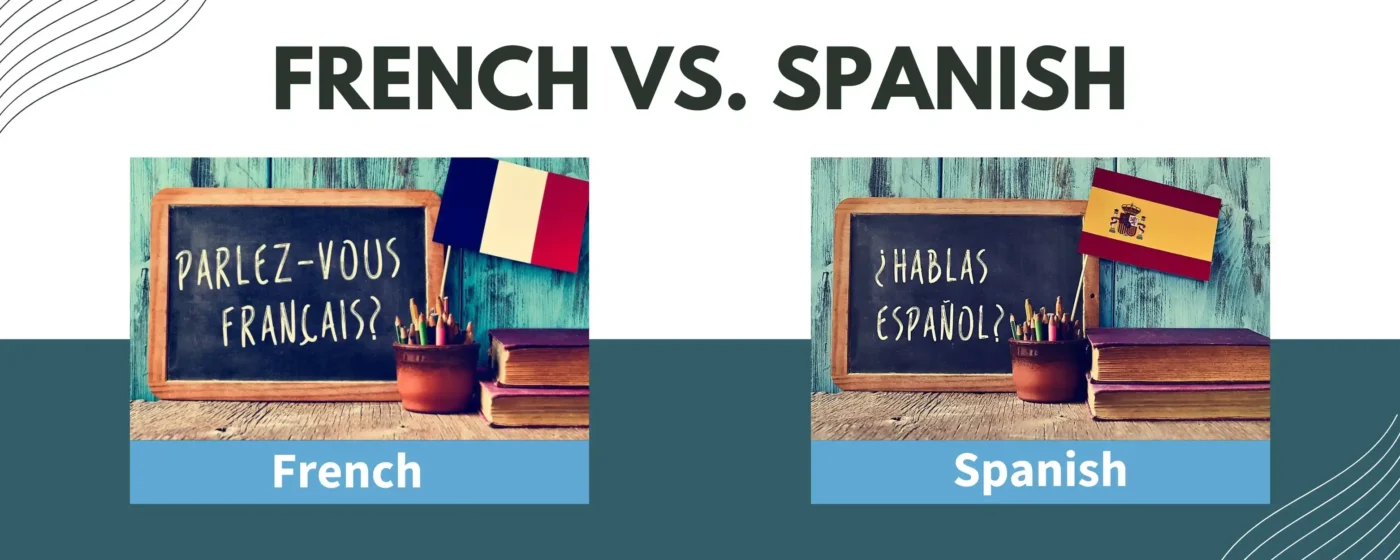Canada’s bilingual status creates unique opportunities for those mastering French. With over 7 million French-speaking Canadians, the benefits of learning French go beyond communication. From career advancement and higher salaries to better immigration prospects and cultural understanding, French language skills are a valuable investment in your Canadian future. Being bilingual allows for fuller participation in Canada’s officially bilingual society.
Whether you’re a newcomer, professional, or student, speaking French opens doors closed to monolingual speakers. Advantages span all aspects of Canadian life, from government jobs to enjoying the rich francophone culture that shapes the Canadian identity.
Key Takeaways
- Learning French in Canada can help you find better job opportunities in various sectors and make your resume stand out.
- Knowing French can increase your immigration score and help you qualify for Express Entry or other provincial programs easily.
- Speaking French helps you connect with local communities, understand Canada’s rich Francophone culture, and feel more included in society.
- Being fluent in both English and French gives you access to top universities, scholarships, and global career opportunities.
Career and Employment Advantages
The Canadian job market rewards bilingual candidates with higher pay and more opportunities. Statistics show in Canada employees fluent in both English and French earn about 7.5% more than monolinguals. This premium reflects employers’ value of language skills in a country with two official languages. Proficiency in French provides a competitive edge in the Canadian job market.
Sectors like government, healthcare, education, tourism, and hospitality especially demand French proficiency. The competitive edge is strongest in regions with francophone communities, where bilingual professionals are essential.
Employment benefits vary by region. In Quebec, French is often mandatory for career growth. New Brunswick’s bilingual status creates many opportunities for those fluent in both languages. Even in English-dominant provinces like Ontario and Manitoba, francophone communities drive demand for bilingual workers in healthcare, education, and social services.
Federal Government and Public Service Opportunities
The federal government is a major employer requiring competency in Canada’s official languages. From entry-level to senior roles, bilingualism shapes recruitment. This reflects the government’s commitment to serving citizens in their preferred language.
Careers in foreign affairs, defense, policy, and international trade require strong French skills. These roles involve representing Canada internationally and addressing anglophone and francophone communities. Bilingualism is essential for contribution and advancement.
Crown corporations in healthcare, transportation, and utilities also prioritize bilingual candidates. Provincial public service roles in French-speaking areas offer more bilingual job paths unavailable to monolinguals.
Private Sector Benefits
Multinational companies value bilingual candidates as they expand in Canada and globally. Organizations serving diverse populations recognize French skills improve customer service and market reach. Quebec-based companies often require bilingualism for management roles.
Quebec’s economy, about 20% of Canada’s GDP, offers many opportunities for those fluent in French. Knowing French opens doors in manufacturing, technology, finance, and creative industries.
International organizations and diplomatic careers often require multilingual skills. French is official in many global bodies, making bilingual professionals valuable worldwide. Skills gained in Canada translate to international careers.
Immigration and Permanent Residency Benefits
For newcomers, French proficiency is a key investment in immigration. The Express Entry system awards up to 50 additional CRS points for strong skills in both English and French, or 25 points for French alone. French language skills can provide additional points in Canada’s immigration system, helping to obtain permanent residency.
The Federal Skilled Worker Program values French proficiency, reflecting Canada’s commitment to francophone communities. These points can be decisive in receiving permanent residency invitations.
Provincial Nominee Programs in French-speaking provinces prioritize candidates with French skills. Quebec’s immigration requires French for most economic categories. Other provinces with francophone populations also favor French speakers.
Beyond points, French proficiency shows commitment to integration. Immigration officers see learning French as a serious effort to build life in Canada, influencing the process positively.
Cultural Integration and Community Connection
Learning French grants access to Canada’s rich francophone heritage spanning over 400 years. French Canadian literature by authors like Gabrielle Roy offers unique insights into Canadian identity and history.
Engagement with French Canadian arts, music, cinema, and theater deepens cultural understanding. Quebec’s vibrant scene produces world-renowned artists contributing to francophone culture globally.
Travel in Quebec, New Brunswick, and other French-speaking regions becomes cultural immersion. Speaking French enables authentic community interactions, access to events, and appreciation of traditions shaping Canadian diversity.
Breaking language barriers fosters inclusivity and social cohesion. Respecting both official languages strengthens national unity. French speakers appreciate anglophones’ efforts to communicate in French, enhancing relationships.
Regional Cultural Immersion
Quebec’s French culture shapes daily life, government, and education. Living or working there without French limits cultural and professional participation.
New Brunswick’s Acadian heritage offers a unique francophone tradition with distinct history and dialects. Bilingual communities provide firsthand cultural experiences.
Franco-Ontarian and Franco-Manitoban communities maintain vibrant French cultures outside core francophone areas, showing language and cultural preservation. Engaging requires French skills and sensitivity.
Francophone festivals across Canada, like Quebec’s Festival d’été, showcase cultural diversity and vitality. Participation demands language skills for meaningful engagement.
Educational Opportunities and Academic Advantages
French immersion programs from kindergarten to secondary school offer pathways to bilingualism for Canadian students. Over 400,000 students participate, about 7% of the student population. French immersion programs significantly improve children’s bilingualism.
Universities like Université de Montréal, Université Laval, and University of Ottawa offer programs in French across disciplines, providing access to research and networks not available in English-only settings.
Scholarships and exchange programs often target bilingual students, enhancing credentials and career prospects.
Specialized research in Canadian francophone studies requires French for primary source access and community engagement, leading to academic and policy careers.
Study Permit and International Student Benefits
International students studying French benefit from streamlined permanent residency paths. Canada recruits French-speaking students to address francophone demographic needs. Study permits for French programs often have favorable processing.
Community colleges and private language institutes offer intensive courses for rapid skill development, catering to diverse learners.
University programs combine language and cultural education, including community placements for real-world practice.
Education in French supports pathways to permanent residency, recognized as integration evidence.
Personal Development and Cognitive Benefits
Research shows learning a new language improves memory, problem-solving, and critical thinking. Bilinguals display enhanced attention, multitasking, and mental flexibility. Learning French can improve cognitive skills like memory, problem-solving, and critical thinking.
Bilingualism delays age-related cognitive decline and reduces dementia risk by strengthening neural pathways.
Mastering French builds confidence and demonstrates persistence, transferable to other challenges.
Language learning fosters emotional intelligence and cultural empathy, valuable in Canada’s multicultural society and global economy.
Global Language Advantages
French, spoken by over 300 million worldwide, opens international travel, business, and cultural exchange opportunities.
French is official in 29 countries and many international organizations.
Travel in French-speaking countries is enriched by language skills developed in Canada.
French facilitates learning related Romance languages, expanding communication.
International career opportunities grow for French speakers in global organizations and multinational firms.
Communication and Social Benefits
French communication skills enable fuller participation in Canadian society and respect for linguistic diversity.
Stronger relationships with francophone colleagues and communities develop when language barriers fall.
Access to French media and entertainment broadens cultural perspectives.
Professional networks in French expand career contacts and opportunities.
How to Learn French in Canada?
Various methods and institutions offer French learning across Canada, from classrooms to online platforms.
French immersion programs provide intensive exposure and practical use, accelerating skill development.
Online apps like Duolingo and Rosetta Stone offer flexible learning with native speaker interaction.
Free or subsidized courses through institues like La Foret French Class, libraries, community centers, and government programs increase accessibility.
Immersion and Community Programs
- Immersion environments accelerate learning through real-life use.
- Conversation groups and cultural events offer informal practice.
- Colleges and universities provide tailored programs for professionals and students.
- Adjustment to French-speaking communities requires patience but leads to confidence and acceptance.
Frequently Asked Questions
1. How much can learning French increase my salary in Canada?
Ans: On average, French proficiency increases salary by 7.5%, with higher premiums in federal government and bilingual regions.
2. Do I need French to immigrate to Canada?
Ans: French isn’t mandatory but offers significant advantages in Express Entry and provincial programs.
3. Which provinces require French most?
Ans: Quebec has the strongest French requirements; New Brunswick is officially bilingual; Ontario and Manitoba have francophone communities.
4. How long to become fluent in French?
Ans: Conversational fluency takes 2-3 years; professional fluency 4-5 years. Immersion accelerates learning.
5. Can I work in federal government without French?
Ans: Some entry-level jobs don’t require French, but advancement usually does. Many departments require bilingualism after hiring.





